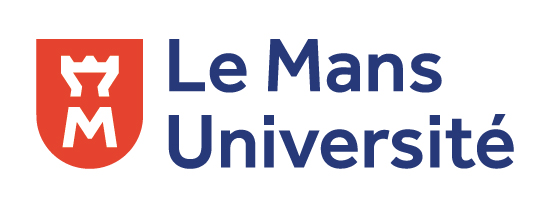 |  |
6TH INTERNATIONAL SYMPOSIUM: LANGUAGE FOR INTERNATIONAL COMMUNICATION (LINCS)
Organized by the University of Latvia (Latvia)
in association with
Le Mans University (France)
TRANS-CULTURAL ECOSYSTEMS: LANGUAGE, CULTURE, AND LITERATURE
Riga, 9-10 May 2024
The social-ecological issues of the twenty-first century involve challenges that require collective action in all fields. The Humanities have much to offer in understanding contemporary problems and changing people’s mindsets to ensure a more sustainable future.
Various discourses allow us to understand the past and the present, as well as shape our perception of the future. Through discourses, people generate and transmit knowledge on a variety of issues, including climate change, environmental sustainability, air quality, conservation, endangered species, eco-inequality, which are some of the most pressing issues nowadays. Moreover, language may not only influence our thoughts, ideas, ideologies, and worldview but also affect our behaviour; according to Arran Stibbe (2015), language can “encourage people to destroy or protect the ecosystems that life depends on.”
An area of academic enquiry that manifests the role of linguistics in addressing key ecological issues is ecolinguistics. Alwin F. Fill (2018) pinpoints that it “is about critiquing forms of language that contribute to ecological destruction and aiding in the search for new forms of language that inspire people to protect the natural world.” Since Einar Haugen’s seminal work, The Ecology of Language in 1972 and the emergence of ecolinguistics in the 1970s various approaches have been proposed, starting from the Haugenian and Hallidayan approaches to ecological discourse analysis. In the new edition of the seminal book, Ecolinguistics: Language Ecology and the Stories We Live By (2021), Arran Stibbe emphasizes that ecolinguistics sees “language as part of ecosystems rather than just influencing how humans treat ecosystems”.
In addition, “Any area of linguistics, […], can be part of ecolinguistics so long as it considers not only human society but also the ecosystems that all species depend on for their continued survival” (2021).
Furthermore, Hubert Zapf’s concept of cultural ecology, which refers to “the interaction and living interrelationship between culture and nature, without reducing one to the other,” makes culture prominent in ecological thought. Hubert Zapf’s book Literature as Cultural Ecology: Sustainable Texts marks a new approach to reading, arguing that literature plays an important role in creating a more sustainable way of life. Indeed, ecocriticism which emerged in the 1990s has taken a global turn in the first decade of the twenty-first century. As Ursula Heise pointed out in “Globality, Difference, and the International Turn in Ecocriticism” (2013), “transnational ecocriticism faces the dual challenges of a global expansion of its objects of study and an interdisciplinary integration of theories, concepts and methods.” Morever, Heise in her book Sense of Place and Sense of Planet: The Environmental Imagination of the Global (2008) coins the term eco-cosmopolitanism, which refers to the immersion in a culture other than one’s own, accompanied by the ecological awareness of this culture.” Thus, the concept of eco-transculturality can only appear valuable in environmental humanities and central to transcultural ecocriticism. In the introduction to their edited volume, Transcultural Ecocriticism: Global, Romantic and Decolonial Perspectives (2021), which brings together postcolonial and ecocritical perspectives, Stuart Cooke and Peter Denney define transcultural ecocriticism as a response to planetary, biological, even geological concerns that scholars examine in “bodies, texts and artworks” informed by “old and new forms of politics and earthly accountabilities.”
This symposium aims at a close examination of this response by bringing together the environmental and the transcultural perspective. Eco-concerns that inform the transcultural imagination associate eco values with transcultural ones. We invite papers that explore language use and meaning creation in fiction and non-fiction marked by a transcultural worldview and a particular sensibility to eco-issues. Since environmental and nomadic thought (Braidotti 2012) is also marked by an accrued sensibility to the nonhuman, special attention could also be given to how eco-transcultural imagination highlights the nonhuman.
We invite submissions on but not limited to the following topics:
- Metaphor and its fundamental usefulness: ecology of language
- Meaning creation in interaction
- Linguistic and cultural diversity in specific socio-political settings
- Education and classroom practices: ecology of language
- Diversities in new technology use in language, culture and literature
- Multilingual language policies in sociopolitical, economic, and cultural environments
- Environmental discourse: narrative of climate change
- Eco-transcultural theory
- Transcultural eco-poetics; ecology and transcultural life-writing; transcultural eco-art
- Eco-transculturality in philosophical nomadism
- Lexicology, lexicography, terminology

